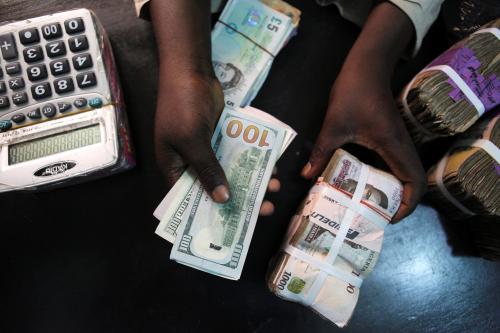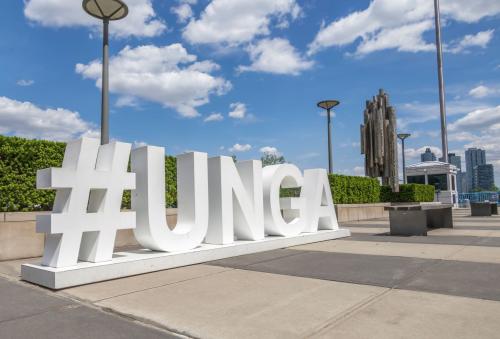

LIVE
Making housing more affordable: Issues at stake in the 2024 election2:00 pm EDT - 3:30 pm EDT
Past Event
2:00 pm - 3:30 pm EDT
1775 Massachusetts Avenue N.W.
Washington, DC
20036
Concern is increasing about the prospect of a new sovereign debt crisis in countries across sub-Saharan Africa. The previous debt crisis of the 1990s is still fresh. It has only been 14 years since officials from major creditor countries (a group known as the Paris Club) and multilaterals adopted ambitious initiatives for outright forgiveness of debt owed by a group of 36 low-income countries. The majority of these countries (29) were African.
A decade and a half later, news headlines are once again ringing the alarm over African debt. Since 2013, the region’s debt and debt servicing costs have risen very rapidly. Today, about one-third of sub-Saharan African countries are either in or at high risk of debt distress. To some observers, the discussion of a debt crisis in Africa is premature. They point out that the increase in debt is a global phenomenon, largely in response to fiscal policies to support economic activity and, in the case of Africa, to mobilize resources for infrastructure and other much-needed economic development. Moreover, debt levels in the region are much lower than average debt ratios worldwide.
On April 12, the Africa Growth Initiative at the Brookings Institution hosted a high-level panel to discuss debt sustainability in Africa. They discussed: Is Africa facing another systemic debt crisis? Or is this time different? What are the policy actions required to avert a debt crisis? For countries in or at risk of debt distress, what are the strategies to restore debt and fiscal sustainability?
Related Content

Brahima Sangafowa Coulibaly, Dhruv Gandhi, Lemma Senbet
April 3, 2019
Moderator

Panelist




George Ingram
September 20, 2024

Brahima Sangafowa Coulibaly, Landry Signé, George Ingram, Priya Vora, Rebecca Winthrop, Caren Grown, Belinda Archibong, Brad Olsen, Jennifer L. O’Donoghue, Sweta Shah, Ghulam Omar Qargha
September 19, 2024

Emily Gustafsson-Wright, Elyse Painter
September 18, 2024